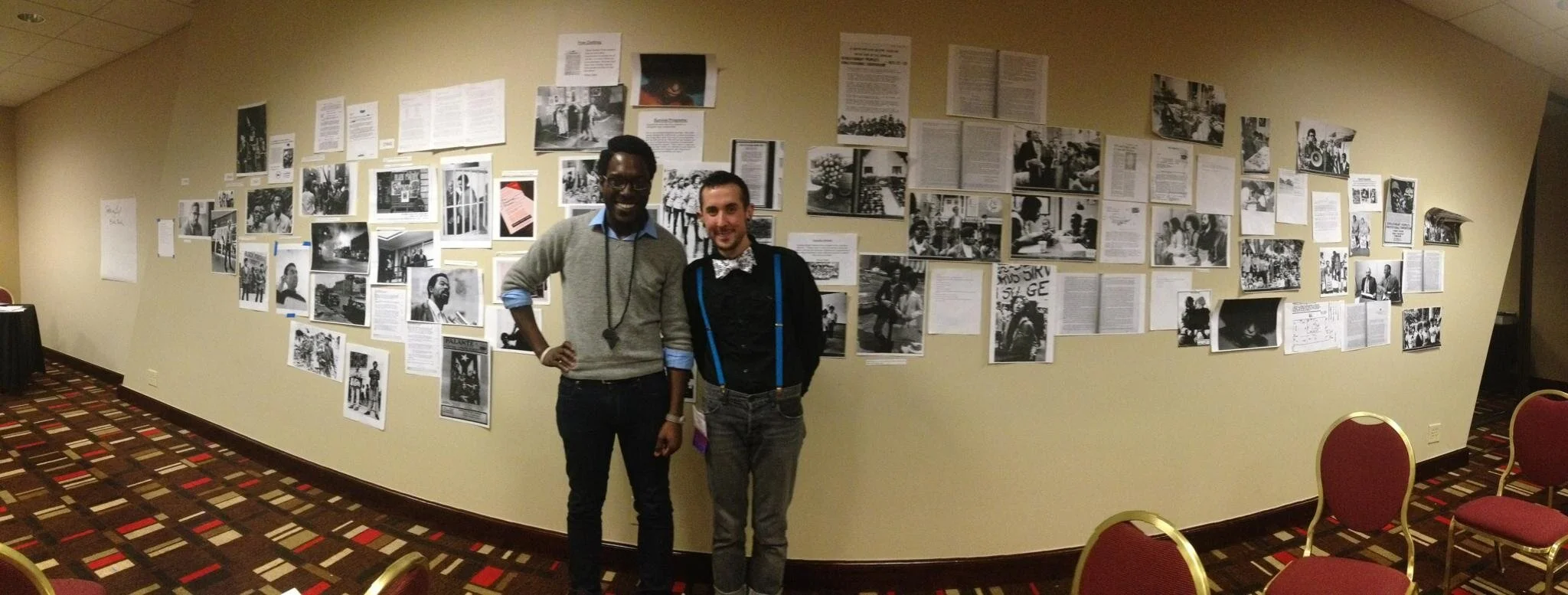Lessons Learned from the Black Panther Party for Self-Defense
Malcolm Shanks and Trystan Reese, Creating Change Conference (2012)
This is an article written by Trystan Reese in 2012, prior to facilitating a workshop he co-created with his colleague at the National LGBTQ Task Force, Malcolm Shanks
When you think of the Black Panthers, what comes to mind?
The last time I asked that question, I heard “armed militants” from almost everyone in the room. Black nationalism, a hatred of white people, thugs, cop-killers… these are very real stereotypes that have infected our views on the Black Panther Party and its aims, and have robbed modern freedom fighters of what is arguably the most important organizing that this country has ever seen.
Land, bread, housing, education, clothing, justice, and peace.
When I first read that list of simple – but critical – demands made by the Black Panthers, something stirred inside of me. I, too, had seen (and believed) that the Black Panthers were just an angry group of Black people who allowed their love of violence to overtake any other goals they may have had. But over the past 8 years I have studied the movement and learned the truth about it, and am excited to share what I’ve learned at this year’s Creating Change conference.
In collaboration with Task Force Director of Public Policy & Government Affairs Stacey Long, I will be facilitating “Lessons Learned from the Black Panther Party” on Saturday, Jan. 28 from 9 a.m. – 12:30 p.m., it will be part history lesson, part revolutionary analysis and part organizing intensive.
There is a reason we don’t all know the incredible depth of organizing that the Panthers did. The movement was successfully stymied after a gruesome nationwide campaign to discredit and destroy it. We’ll talk more about that in our session, but here are a few interesting tidbits about the Panthers and why Stacey and I care about continuing on their legacy:
The Black Panthers are the reason we currently have free breakfast programs in public schools today. There was a time when the Black Panthers were feeding more school children nationwide than the US government was.
The Black Panthers ran several registered nonprofits, allowing them to apply for and receive grants that facilitated their youth programs, free food and clothing services, elder support systems and sickle cell anemia research. Much of what we currently know about sickle cell anemia is a direct result of those first testing programs.
In 1970, the Illinois Panthers opened a free health clinic that served over 2,000 people within its first two months of existence.
Unhappy with the ineffective teaching principles of the public school system, the Panthers founded the Intercommunal Youth Institute which remained open for almost 20 years. Their methods of teaching changed the way educators thought about school structures nationally, and in 1977, the California legislature awarded the Oakland school for “setting the standard for the highest level of elementary education in the state.”
The Black Panther Party believed deeply in the political process, successfully running political campaigns that placed its members into office around the country. Today, many former Panthers are still in office at the local and federal level.
Huey Newton, the co-founder of the Black Panther Party, publicly supported the gay liberation movement. In 1970, he stated that he believed “the homosexual could be the most revolutionary” of all oppressed people. In that same speech, he called for full participation of the gay liberation movement and the women’s liberation movement, asking his fellow Panthers to do the hard personal work of examining and dismantling their own biases and insecurities about homosexuality and feminism.
When the unfair stigma placed on the Black power movement is erased, we see clearly the organizing models and revolutionary principles of the Black Panther Party.
Land, bread, housing, education, clothing, justice and peace.
Their work still stands as exemplary examples of a people seeking dignity and self-determination, taking community control over their own destinies.
See you in Baltimore, you can still register for Creating Change here.

